Legal technology or technology at the service of law includes techniques and companies that provide them, under the Anglo-Saxon term of legaltech, as an abbreviation of Legal Technology.
The types of associated services fall under several headings, one of which covers digital trust service providers that manage digital evidence to support electronic contracting or the evidentiary position of the parties using it. Many of the digital trust services are related to digital identity management or electronic notifications.
This taxonomic variant is also included in other related activities also identified by abbreviations:
- Insurtech. From the terms Insurance and technology, the term Insurtech defines a sector that brings together traditional insurance companies, technology companies and more or less disruptive startups that use new technologies such as blockchain, big data, digital evidence or cloud computing to create new ways of offering products and services to the end customer in the insurance sector.
- Fintech. From the terms Financial and technology, the term Fintech defines a sector of financial services that applies new technologies to financial and investment activities. Fintech are new applications, processes, products or business models in the financial services industry, composed of one or more complementary financial services and made available to the public via the Internet.
- Regtech. From the terms Regulation (regulatory requirements) and technology (technology), the term Regtech covers the technologies aimed at facilitating regulatory compliance in highly regulated sectors and the companies that provide them.
There are different interesting compilations of companies specialized in electronic evidence management, but possibly the most interesting is the official compilation published by the Secretary of State for Digital Advancement that divides digital trust services in two groups:
- Qualified Services. Those defined in EU Regulation 910/2014 (eIdAS) and have passed a conformity assessment by a CAB.
- Non Qualified Services. Those covering aspects not covered by EU Regulation 910/2014 (eIdAS).
Given that both groups must be subject to supervision by the SEAD, a name with less negative connotations for the second group could be “Other supervised services“.
The use of technologies extends to all areas and a great challenge is to harmonize the world of law with the world of technologies, which, to a large extent, consists in defining the way to demonstrate (prove) that a certain activity based on digital technologies took place or not: that something was communicated, that consent was obtained, that electronic evidence of an illegal act was collected, that the initiator of a procedure was identified….
An interesting work in this sense is the eBook “SOCIEDAD DIGITAL Y DERECHO” directed by Tomás de la Quadra Salcedo and José Luis Piñar Mañas, coordinated by Moisés Barrio Andrés and José Torregrosa Vázquez and published by the Ministry of Industry, Commerce and Tourism, the entity Red.es and the Official State Gazette, in Madrid in 2018.
Examples of these tools Legaltech, Insurtech, Fintech, Regtech and entities that provide them are:
- Addalia,
- Argon,
- Biometric VOX,
- Camerfirma,
- Certifydoc
- Coloriuris,
- Confirmsign,
- Councilbox
- DocuSign,
- Docxpresso,
- Doyfe,
- EADTrust
- eEvidence,
- Ecertic,
- eGarante,
- Electronic IDentification,
- Evicertia,
- Innovoto,
- Ivnosys,
- Izenpe
- Judiciary Blockchain
- Logalty,
- Lleida.net,
- NodalBlock
- Maicertificado,
- Noticeman,
- Notificad@s,
- Onna,
- Private Investments Network,
- Procesia – LexSign
- Safecreative,
- Serban,
- SIA,
- Signaturit,
- SmartDegrees,
- Terminis,
- Validated ID – vidsigner,
- Viafirma,
- VintegrisTECH – Nebulasuite,
- Zertifika,
- Zuratrust,

